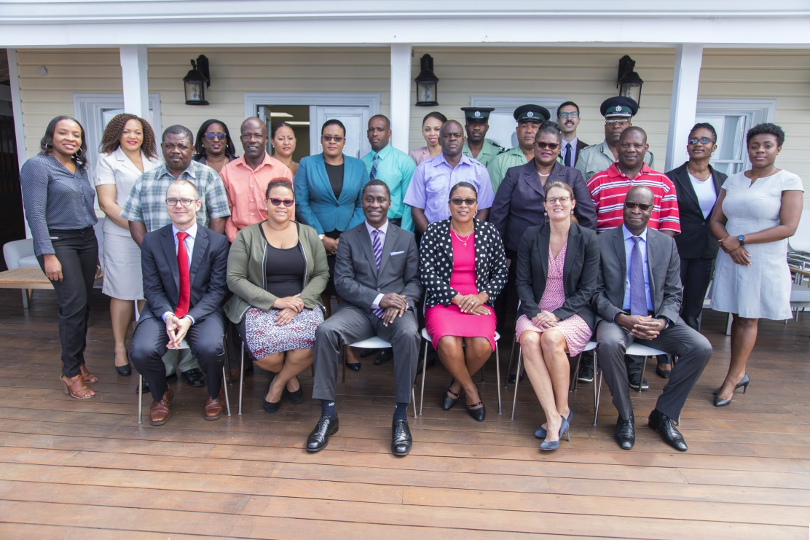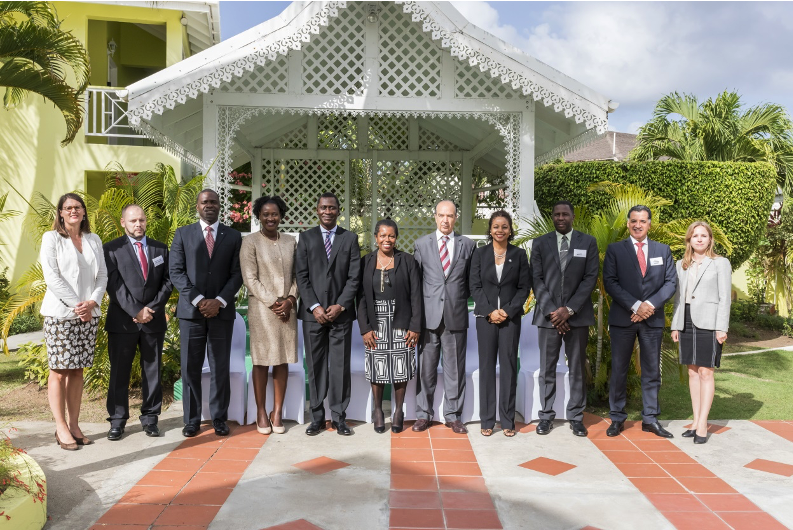The Caribbean
Countries across the Caribbean remain steadfastly committed to human rights-responsive institutions and legal frameworks, the delivery of equitable justice, and peaceful and stable communities. There is growing interest in and awareness of the benefits of the UN Convention against Torture and Other Cruel, Inhuman or Degrading Treatment or Punishment (UNCAT) and the many ways it helps augment existing regional and national efforts to improve criminal justice.
In its Caribbean-specific work, CTI supports Caribbean governments to:
- Take action to ratify the UN Convention against Torture and put in place action plans for implementation;
- Explore and exchange on best practices for fair and efficient justice systems;
- Build capacity and technical expertise for anti-torture legal frameworks;
- Advance prison reforms to improve material and living conditions of persons deprived of liberty.
Regional Ratification across Caribbean
The CTI Core States of Chile, as the lead covering Latin America and the Caribbean, alongside Denmark and Ghana, have been playing active roles in the Caribbean, convening and participating in CTI regional events and country visits, where they have shared the benefits that ratifying the Convention has brought in their own countries, allowing for cross-regional cooperation and exchange on UNCAT ratification and implementation experiences.

The deciding factor for our ratification was that, unlike other UN Conventions, there was no single prescription for ratification. Upon ratification we can then fully engage in a mapping exercise for [the Convention’s] full and effective implementation (…).
The. Hon. Ellsworth Johnson, former Minister of State for Legal Affairs of the Bahamas, and current Minister of Financial Services, Trade and Industry and Immigration.
CTI visits the Caribbean to support UNCAT ratification and implementation
Through tailored country visits and close dialogue with government counterparts, CTI has assisted a number of Caribbean States in advancing towards ratification and implementation of UNCAT. Our confidential discussions with Caribbean governments, as well as our technical seminars and advisory services, have resulted in greater awareness of the Convention across the Caribbean, openness to changing practices and procedures, and deep interest in implementing the Convention fully. Of the remaining Caribbean States left to ratify UNCAT, CTI is following up on their requests for support, and working to overcome national and local challenges to implementation such as resource and personnel capacity, and timely and meaningful reporting to the UN Committee against Torture.
Caribbean visits include those to:

Grenada has been a beneficiary of CTI’s technical support and quiet diplomatic encouragement; we look forward to additional discussions with the CTI States as we move to implement the Convention fully.
Hon. Kindra Maturine-Stewart, Minister for Legal Affairs of Grenada, speaking upon Grenada’s UNCAT ratification in September 2019.
Exploring and exchanging on best practices for fair and efficient justice systems

CTI provides guidance to governments on how implementing UNCAT can help build effective, transparent and accountable justice institutions. States from the Caribbean and beyond participating in CTI events have shared how joining the Convention has resulted in greater professionalism in police services and enabled law enforcement and justice sector officials to become more sensitised about effective rules, codes of conduct and technological advances.
Caribbean countries have many good practices that can be emulated in other regions, including by:
- Establishing independent, civilian-staffed oversight mechanisms to manage and process complaints, and launch investigations into police misconduct;
- Developing and implementing manuals on the use of force;
- Providing audio and video recording of police interviews in legislation in order to protect against abusive interviewing practices and deter coerced confessions;
- Creating National Human Rights Institutions (NHRIs), including through Ombudsperson offices and other oversight bodies.
Building capacity and technical expertise for anti-torture legal frameworks
CTI is supporting countries in the Caribbean region to review existing laws for compatibility with UNCAT both prior to and post ratification. CTI’s workshops and seminars offer the opportunity for exchange of good practices with other countries and experts, and they also focus on consultation processes, adoption strategies and finding solutions to implementation challenges.
Caribbean constitutional texts and laws provide strong foundations for UNCAT ratification and implementation providing clear prohibitions against torture and ill-treatment, as well as basic rights for arrested and detained persons. Most Caribbean countries have also explicitly provided for the exclusion of evidence obtained in an unfair or otherwise oppressive manner in their respective Evidence Acts or through the application of so-called “Judges’ Rules”.
Read CTI’s comparative overview tool for Latin America and the Caribbean for a comparative overview of the anti-torture legal frameworks in Latin America and the Caribbean.
Advancing prison reforms
A major challenge in a number of Caribbean countries relates to prison services, in particular prison overcrowding and material and living conditions of detention. CTI has facilitated reform conversations that include the use of non-custodial measures; reclassifying inmates from overcrowded prison facilities to low or medium occupancy ones; or using night courts and prison hearings to alleviate case backlogs.
CTI is ready to provide technical assistance to interested Caribbean countries wishing to embark on prison reform strategies, such as through seconded experts who are able to undertake confidential reviews of prison management and detention conditions, offering recommendations to the government.

